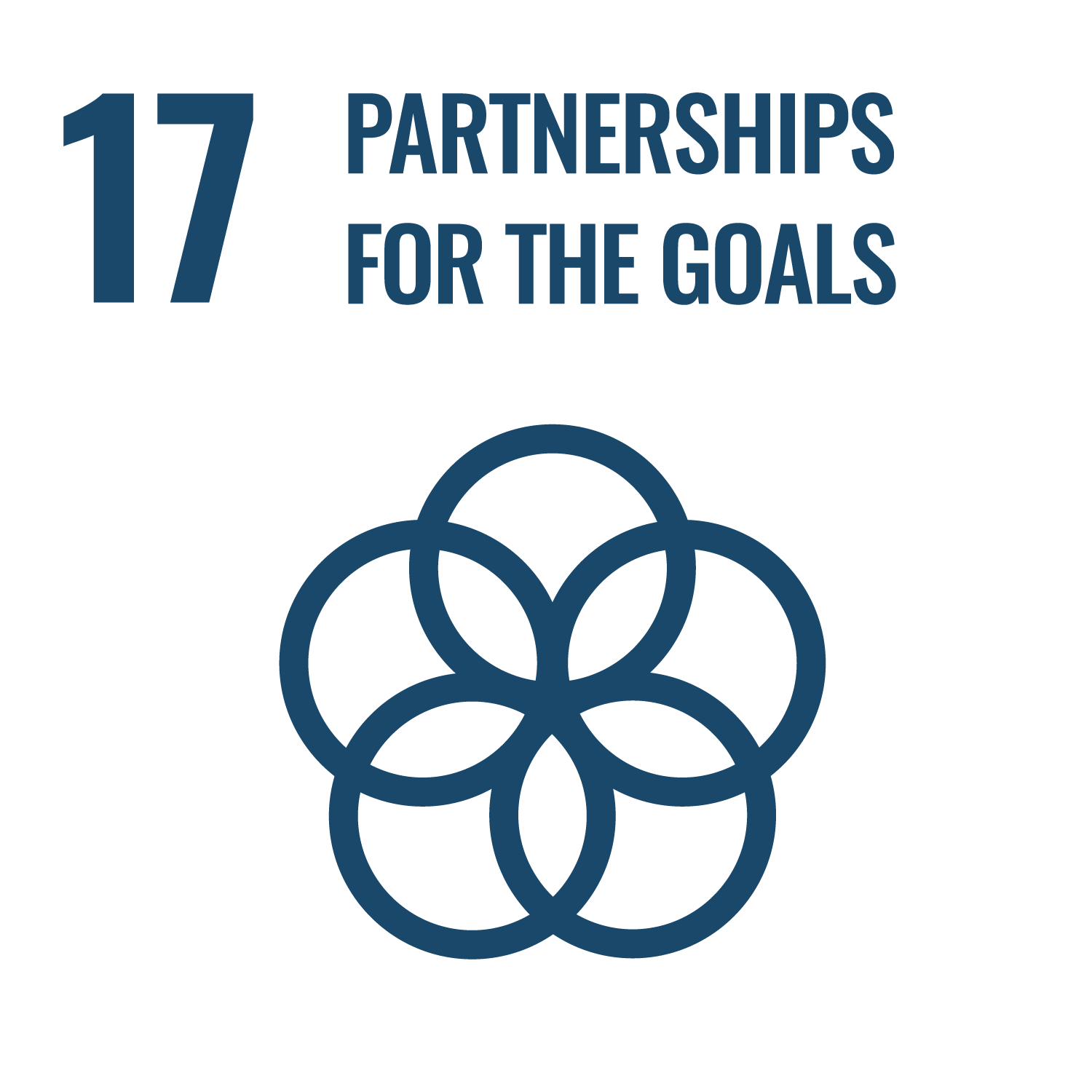 Goal 17. Partnerships to achieve the Goal
Goal 17. Partnerships to achieve the Goal
People Social Development POLICY
Brief Description
AASTMT's Strategic plan looks forward to the broader ways to support the SDGs through collaboration with other countries, Universities, & governmental and non-governmental Institutes, and other stakeholders. AASTMT seeks to strengthen the institution by giving students the freedom to choose their research topics. The university, as well, is committed to contributing to the improvement of society through high quality education and cutting-edge research in line with stringent international guidelines. AASTMT has a vital responsibility to the Government through participating in other government research. Partnerships for goals policy at AASTMT focus on international collaborations in all directions to prepare their graduates to be internationally competent, increase educational quality and support SDGs goals. AASTMT has transparent channels and platforms for discussing international issues, and it complies with GAAP Financial Reporting. In addition to supporting the supply of knowledge and the dissemination of practices to different users and communities of practice focusing on implementing urban policies that help achieve sustainable cities & communities.
Scope
- All University Employees
- All Campuses
- Faculty
- Officers
- Students
- Local Communities
Aims of the Policy
The primary assignments of the Office for International Relations are the development of collaboration strategies between higher education institutions and companies, inside and outside Egypt, within the programs of mobility for students and teachers; the development of international cooperation R&D activities; and the support and coordination of exchange and mobility of students, teachers, and staff. In addition, AASTMT focuses on dealing effectively with different stakeholders and supporting the Government in various research. The research department employs scientific knowledge and expertise in academic and technological development in all aspects of the Academy to become the pride of place among the institutions of scientific research at the Egyptian and Arab.
AASTMT has effective, reachable, and transparent contacting channels through hotlines, emails, and other media. In addition, AASTMT hit sustainable cities and societies through the following:
- Identify and address essential physical, social, and psychological human needs concerning human settlements such as cities and towns.
- Apply basic principles of sustainable planning and building and identify opportunities to make their community more sustainable and inclusive.
- Reflect on the role of local decision-makers and participatory governance and how to represent a sustainable voice in planning and policy for their community.
- Engage with community groups and local planning systems for sustainable future visions for their community.
Introduction
The Internationalization of education is a prime aim of international relations among higher education institutions. Still, it is not considered a goal but a means to improve and promote the quality of teaching, learning, and research.
The acquisition of knowledge, the mobilization of talent, the applied further research in AASTMT and with the Government and sharing of curricula among partner institutions and stakeholders are considered key advantages of higher education internationalization.
AASTMT offers undergraduate and graduate programs on issues such as sustainable urbanism, community development, housing, and architecture design with responses to the physical and social context and other courses which deal with sustainability.
Policy Statement
AASTMT supports the supply of knowledge and the dissemination of practices to different users and communities of practice focusing on the implementation of urban policies that help to achieve SDG 11. The university, as well, is committed to contribute to the improvement of society through high quality education through offering undergraduate and graduate programs on issues such as sustainable urbanism, community development, and other courses, which deal with sustainability.
In addition, AAST encourages spreading justice and fighting corruption and bribery throughout the Academy (refer to “Anti-corruption and Anti-Bribery Policy”). Also, AAST encourages justice among employees and students, particularly students with disabilities. It also supports the principles of academic freedom for both teachers and students in teaching, learning, and research, allowing them to freely choose their research topics (refer to “Academic Freedom Policy”).
Finally, AASTMT establishes key partnerships with national and international bodies to improve academic and quality norms. In addition to integrating into cooperation networks for education, training, and R&D, to increase the global visibility of AASTMT and the academic community.
|
Policy title:
|
People Social Development
|
|---|---|
|
Date created:
|
2020 |
|
Approving body:
|
SDG workforce committee |
|
Version:
|
4 |
|
Last Review Date: |
2025 |
|
Next review date: |
2026 |
|
|
International Relation Department
|
|
Lead contact:
|
Dr. Nancy Abdel-Moneim Associate Dean - Faculty of Engineering & Technology Dr. Noha Hany El-Amary Vice-Dean for Training and Community Service - Faculty of Engineering & Technology Dr. Shahira Ibrahim Hassan College of International Transport and Logistics Dr. Marwa Hassan College of Electric and Control |
|
Approval Signature
|
Dean of Scientific Research and Innovation |




